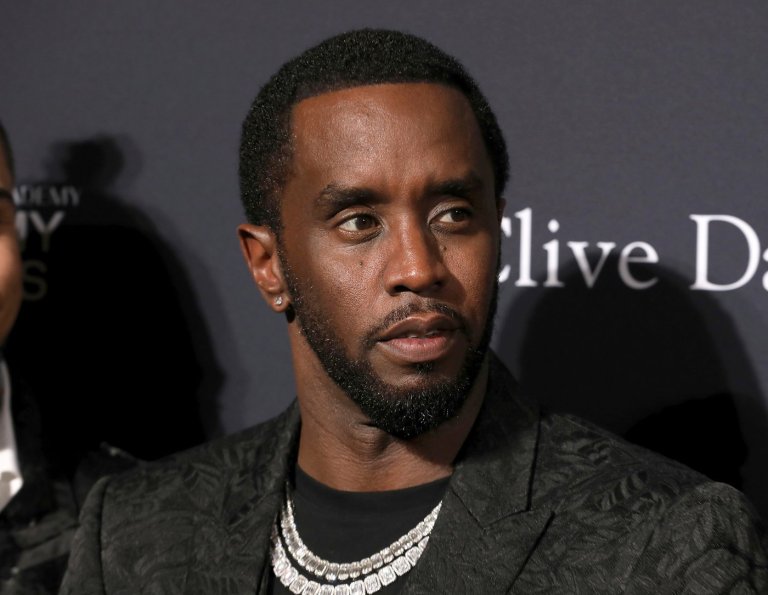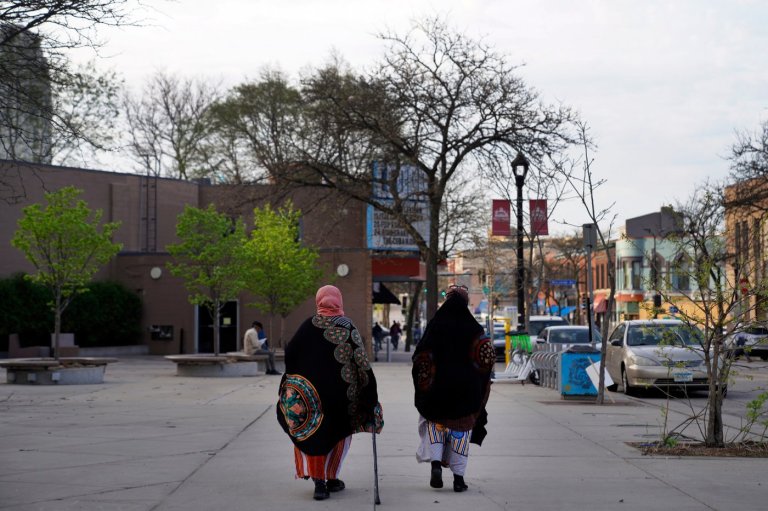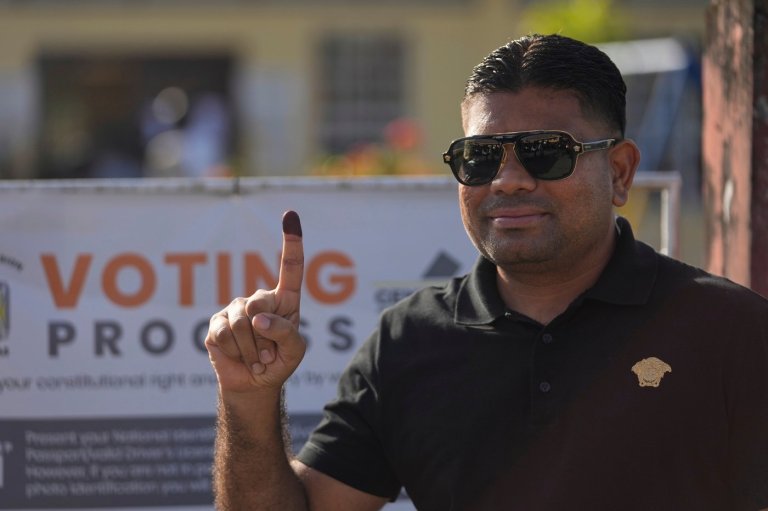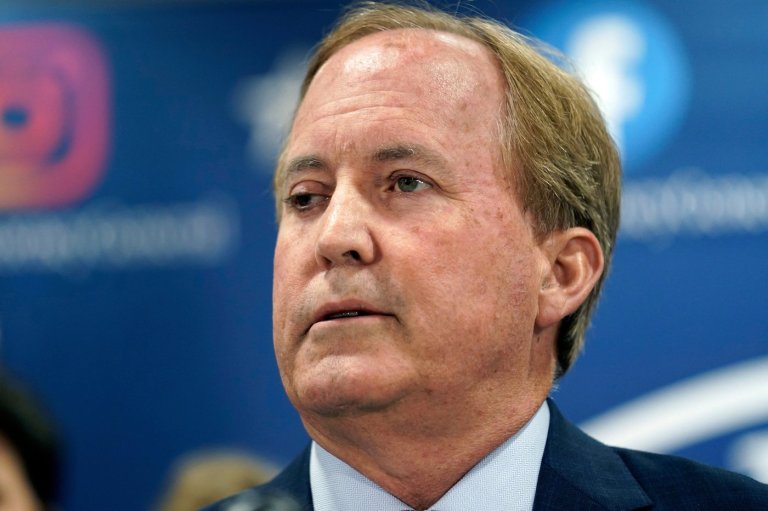Key criminal case against ex-interim leader Áñez annulled as Bolivia lurches to the right
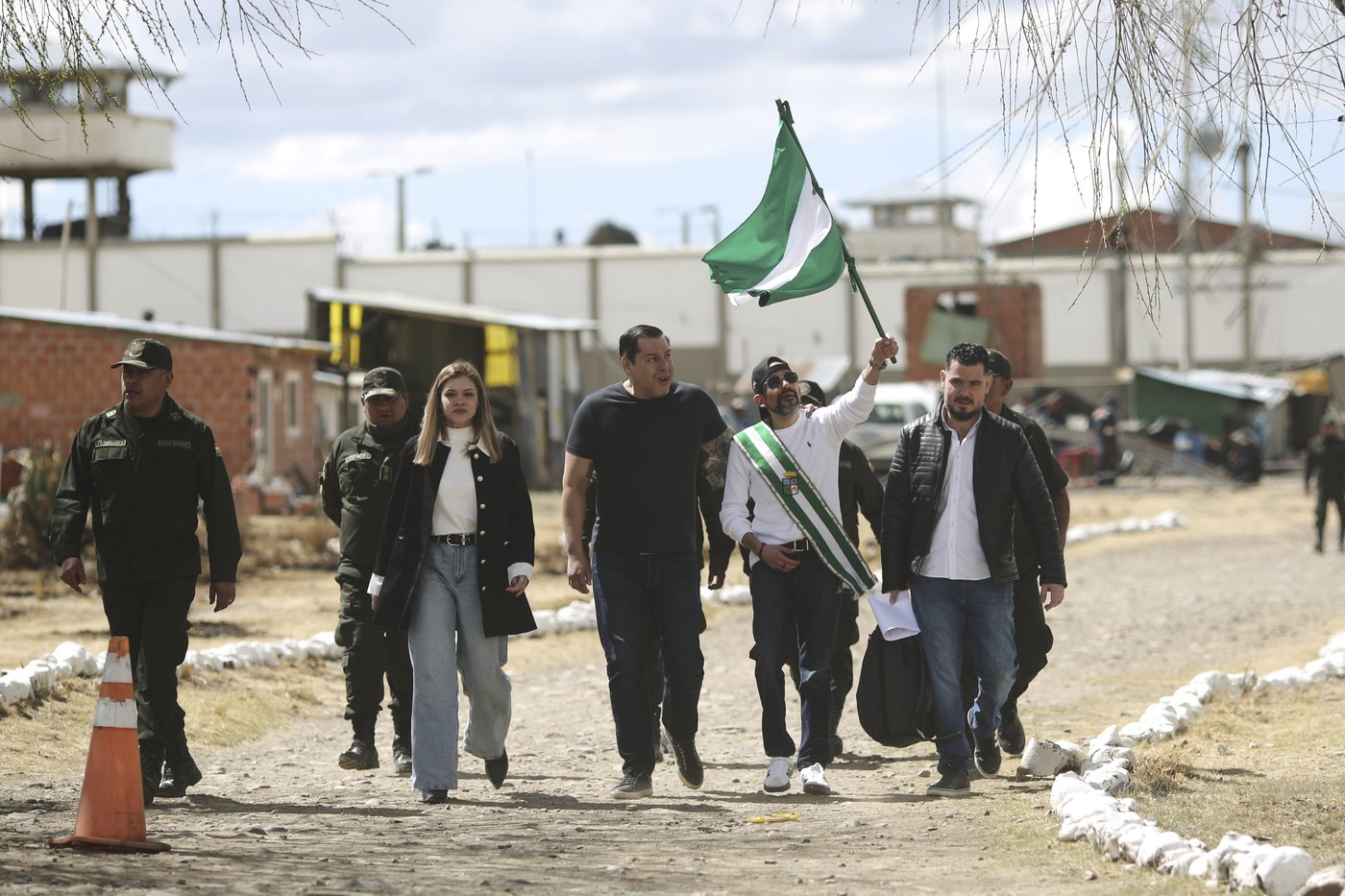
LA PAZ, Bolivia (AP) — Bolivia’s highest court late Friday threw out criminal charges against former interim President Jeanine Áñez over her role in the 2019 killings of protesters, ordering the flashpoint case to restart in a special process for alleged crimes committed by former heads of state.
The contentious decision just before midnight Friday in Bolivia marked a legal victory for the opposition leader, who has spent almost four-and-a-half years in prison on different charges related to the 2019 ouster of her predecessor, left-wing former President Evo Morales, following his disputed reelection.
The sudden twist in her proceedings comes just weeks after Bolivia’s general election boosted the opposition for the first time in decades, raising concerns among critics who see a justice system subject to political manipulation.
A runoff presidential election in October pits a centrist pro-business senator against a right-wing former president.
A political sea change
Áñez was arrested as 2020 elections elevating her political rival, leftist President Luis Arce, cut short her stint in power. In 2022, she was sentenced to 10 years in prison on charges of terrorism and sedition in connection with her 2019 takeover as a little-known right-wing senator following Morales’ resignation under pressure from the military.
Other cases against her, including the one heard Friday dealing with security forces’ killing of protesters under her watch, had landed her in preventative detention but not yet gone to trial.
The latest moves transfer key criminal cases against Áñez — dealing with security forces’ fatal shooting of 22 civilian protesters in the districts of Sacaba and Senkata — to Congress, where a two-thirds majority must approve the trial before sending it to the Supreme Court.
Right-wing opposition parties sympathetic to Áñez this month won a congressional majority in Bolivia’s election that signaled an end to almost two decades of dominance by Morales’ ruling Movement Toward Socialism, or MAS, party. If Áñez scrapes together enough congressional support, her case could be blocked entirely and never reach trial.
A homecoming for another opposition leader
The ruling on Áñez came the same day as another prominent opposition leader, Luis Fernando Camacho, left jail and jetted home to a hero’s welcome in his city of Santa Cruz, days after a judge lifted his preventative detention and granted him house arrest.
While Camacho will be confined to his home pending trial over his involvement in the 2019 political crisis, generous work-releases privileges allow him to resume his duties as governor of the prosperous eastern province of Santa Cruz for the first time since his 2022 arrest.
“The dark days are over. It’s an honor to have spent almost three years in prison for defending democracy,” Camacho, wearing his governor’s sash and dark sunglasses, told fervent flag-waving masses that met him at the Santa Cruz airport and lined the streets all the way into the city. Chants of “Governor! Governor! Governor!” filled the air.
Camacho stopped his motorcade to pop out, shake hands and pose for selfies with supporters. He picked up his governor’s baton to delirious cheers.
Camacho’s former running mate in the 2020 elections, opposition activist Marco Antonio Pumari, also walked free from jail on Friday after nearly four years in pretrial detention in the southern region of Potosí. He is subject to a lax house-arrest arrangement pending trial, allowed to leave home for work purposes as long as he reports twice weekly to prosecutors.
“I’m not leaving defeated, but victorious,” he said through tears.
Lawyer says Áñez ‘moving toward’ freedom
Lawyers for Áñez have repeatedly sought to invalidate the proceedings against her, arguing that a civil court has no jurisdiction to rule on the fate of a former president for crimes allegedly committed while in office.
Her defense hopes that Friday’s annulment of the case of the protester killings will pave the way for the court to similarly send back the clock on the main sedition case that resulted in her 10-year prison sentence.
“This sentence is null and void, because it was handed down by authorities whose competence did not come from the law,” her lawyer Luis Guillén told The Associated Press.
If the court agrees to invalidate the sentence, Áñez could walk free as the special process for ex-presidents kicks off.
Even if Congress sends her cases to trial, proceedings before the overburdened Supreme Court could drag out for years.
The process has long been criticized for being both too politically partisan and too lenient against former leaders whose parties have a majority in Congress.
Opponents argue that Áñez, who came to power in what Morales’ supporters view as a coup, should not benefit from the judicial privileges afforded to democratically elected former presidents.
But Bolivian history offers examples to the contrary, with former military dictator Luis García Meza granted a specialized trial on genocide charges despite the late general seizing power in a violent 1980 coup.
“Her release will take time, but the paths that have opened in recent days show we are moving toward recovering her freedom,” Guillén said.
The fate of their political enemies hangs in the balance
As he emerged from jail Friday, Camacho sent mixed signals when asked how he views the political fortunes of Morales, Bolivia’s first Indigenous president who retains some popular support but was barred from running in this year’s election by a court ruling on term limits.
“We are not going to retaliate against him,” he said of his rival, who is hiding out in his tropical stronghold of Chapare evading an arrest warrant on charges related to statutory rape.
But, gesturing to Chonchocoro Jail behind him, he quickly added: “I believe that Evo Morales will soon be entering Chonchocoro.”
___
DeBre reported from Buenos Aires, Argentina. Carlos Valdez in La Paz, Bolivia, contributed to this report.
____
Follow AP’s coverage of Latin America and the Caribbean at https://apnews.com/hub/latin-america
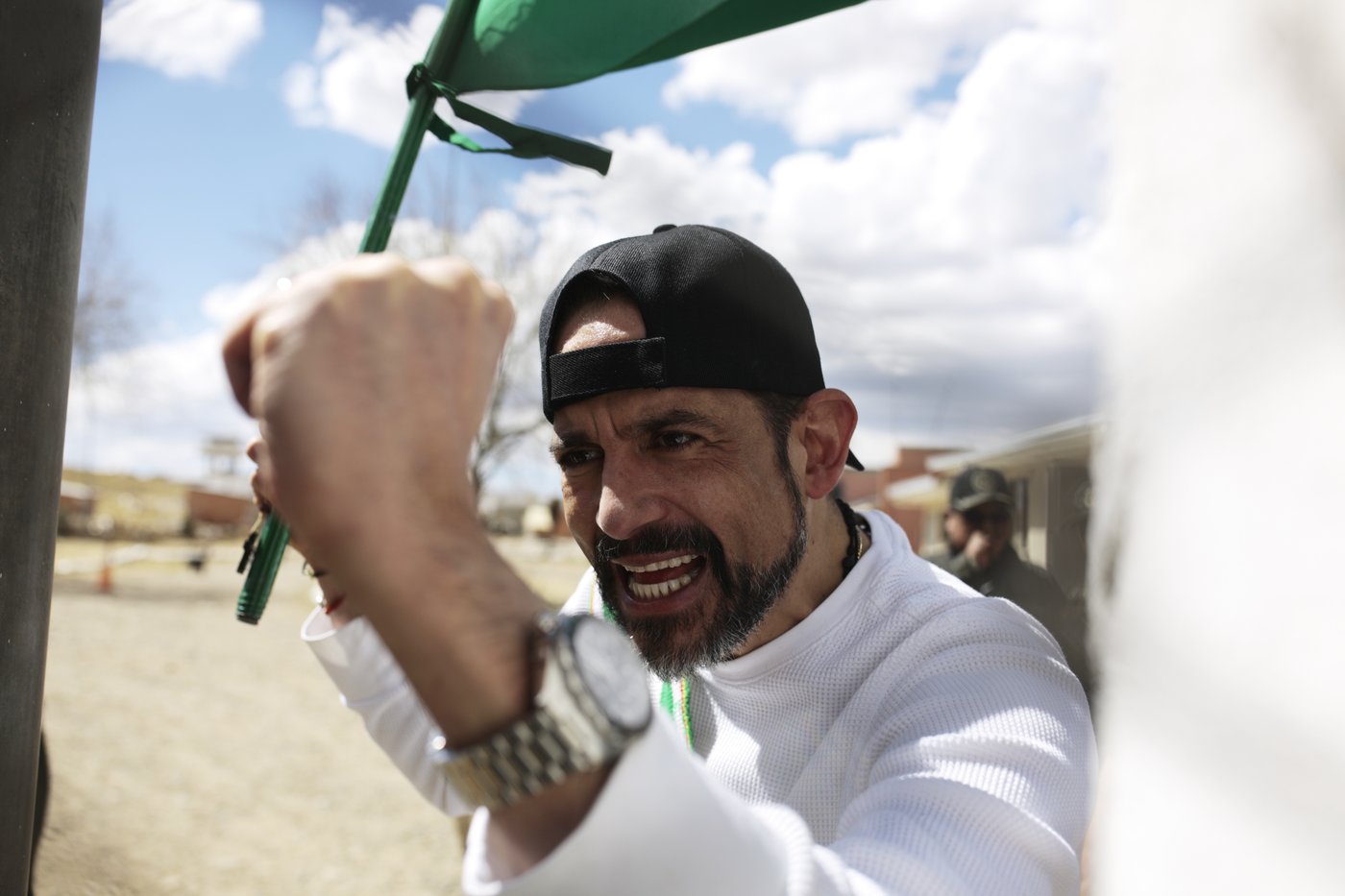
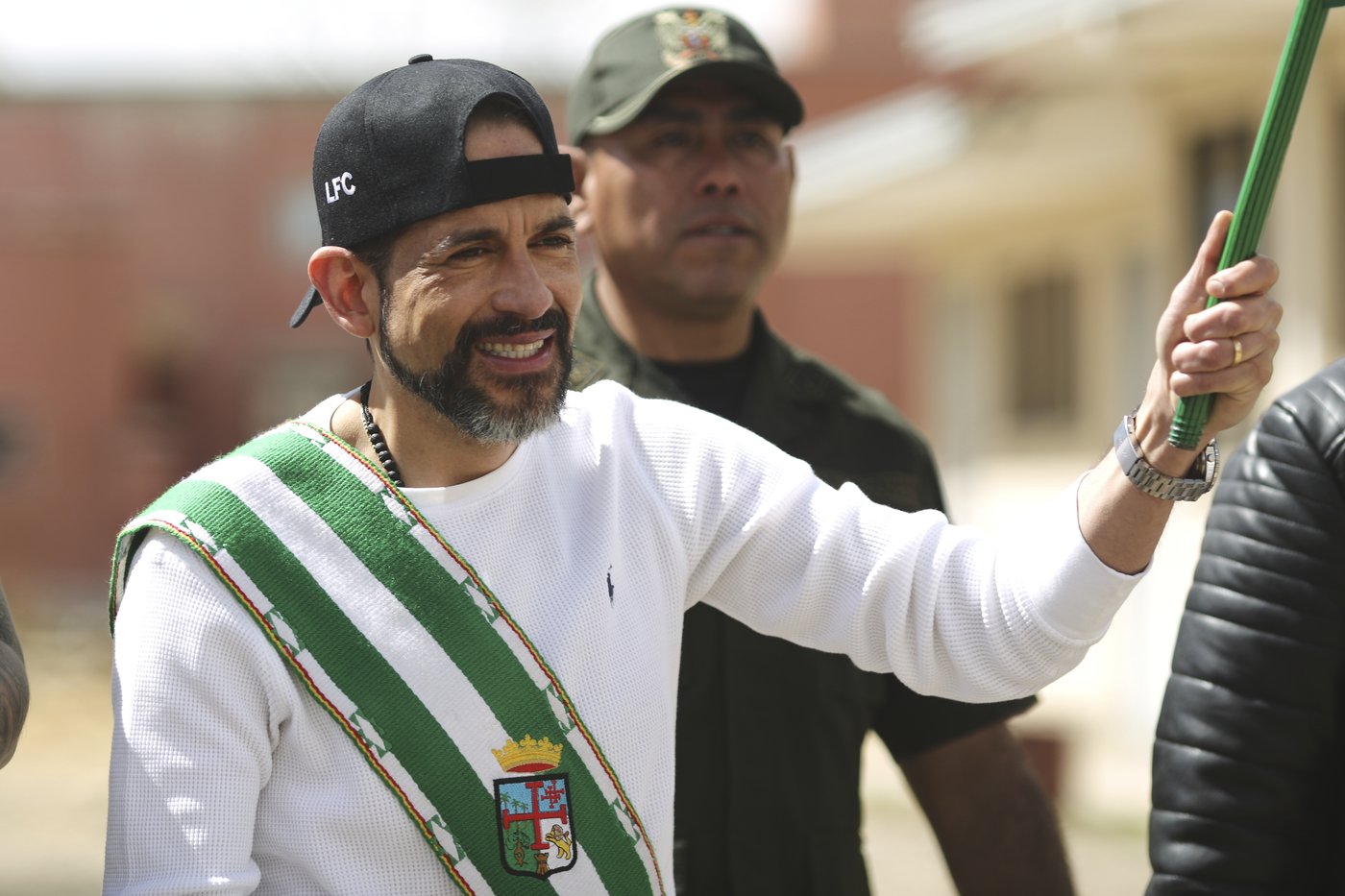
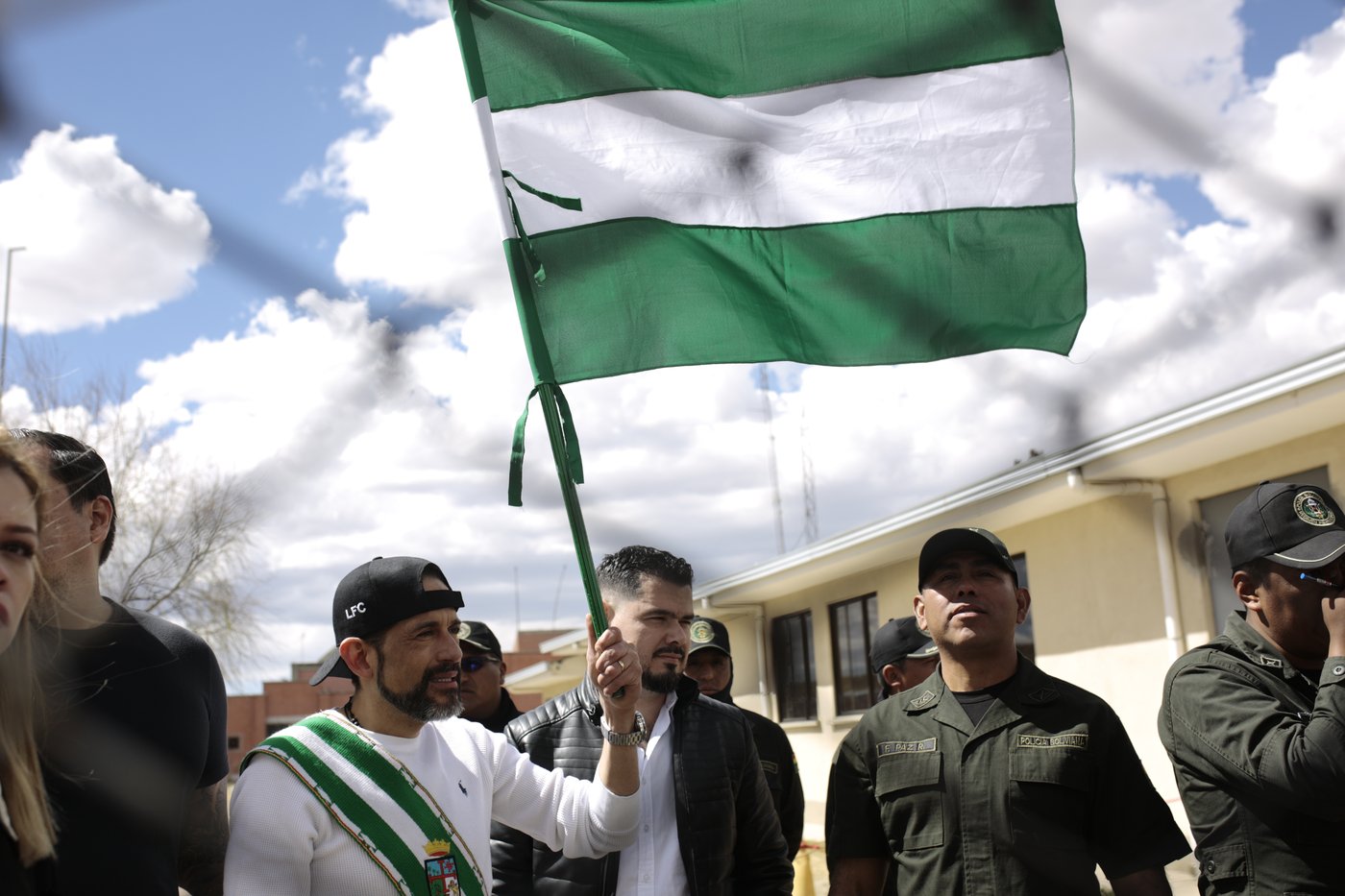
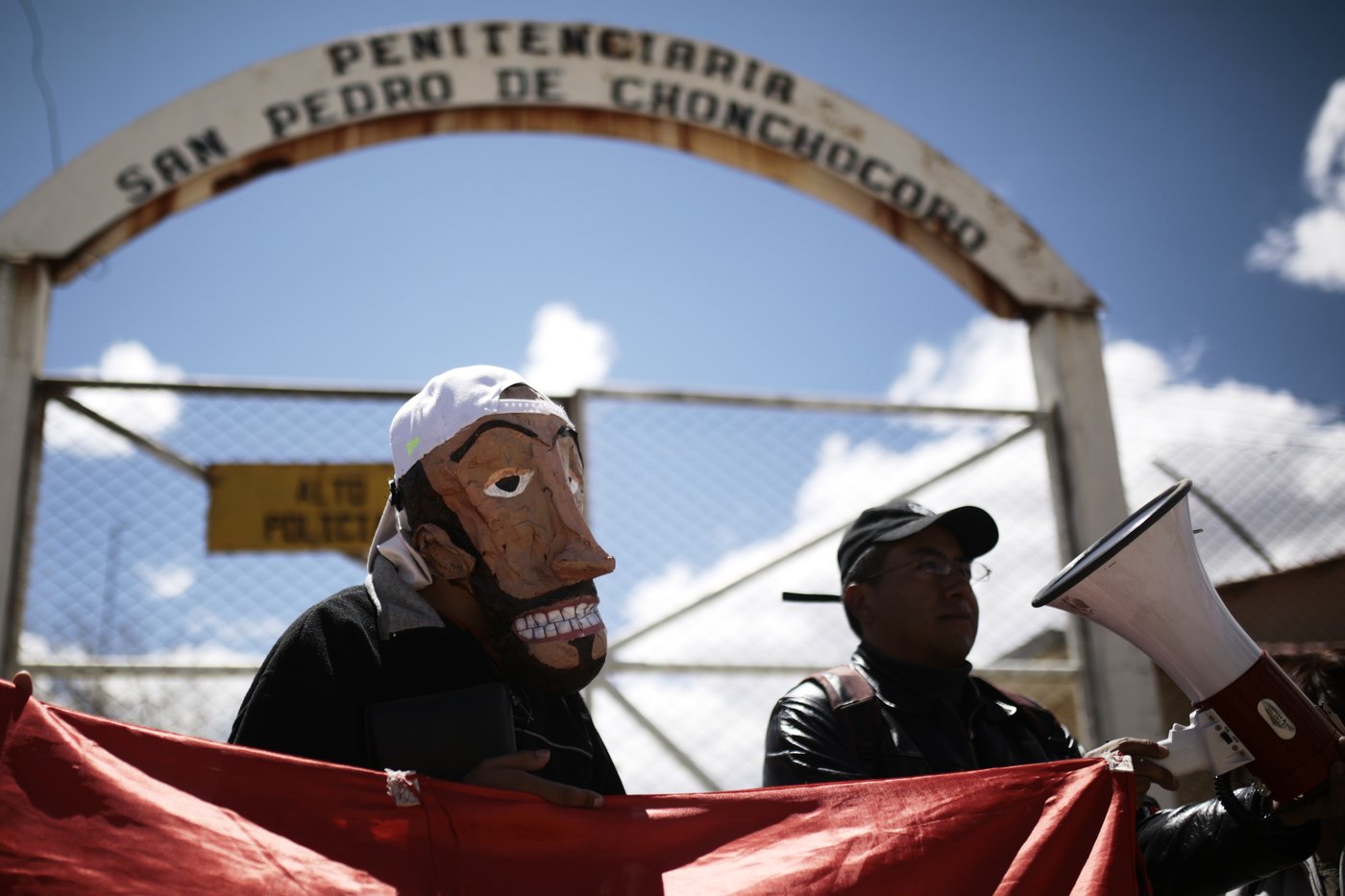
Join the Conversation!
Want to share your thoughts, add context, or connect with others in your community?
You must be logged in to post a comment.












